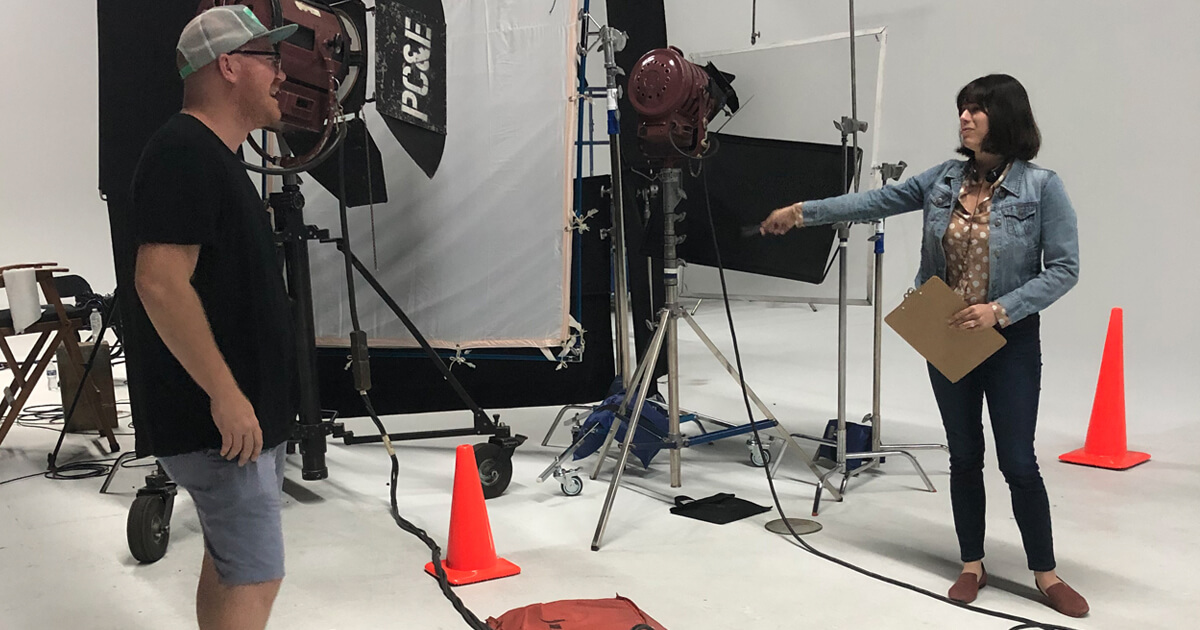Exactly How Event Production Works: A Comprehensive Look at the Process
Event production is a complex and structured process that requires cautious planning and execution. It starts with establishing clear objectives and comprehending the target audience. Each step, from budgeting to place option, plays an essential duty in making sure success. As the process unravels, different aspects must straighten perfectly. Yet, the subtleties of this elaborate operation typically go unnoticed. What are the key stages that add to an unforgettable event?

The Preliminary Planning Phase
When starting on event production, cautious preparation is necessary to guarantee an effective outcome. The initial planning phase works as the foundation for all subsequent efforts. During this phase, event producers should define the event's function and purposes clearly. Determining the target audience helps tailor the experience and messaging, guaranteeing significance and engagement.Producers need to likewise consider the event style, whether it be in-person, digital, or hybrid, as this will affect numerous logistical components. Choosing an appropriate day and venue is vital, as it influences accessibility and availability.Furthermore, putting together a dependable team is fundamental for dividing responsibilities and simplifying interaction. Establishing a timeline with turning points guarantees all tasks are finished on routine. This phase includes complete research study, including identifying potential challenges and devising methods to reduce risks. Inevitably, a well-structured first preparation stage establishes the tone for a successful event production trip.

Budgeting and Source Allowance
In event production, reliable budgeting and source allocation are critical for success - event production charlotte. Developing monetary criteria sets the structure for all succeeding choices, while source circulation methods ensure that every element of the event is properly supported. Together, these components aid keep control over expenditures and optimize the usage of available resources
Developing Financial Parameters
Developing monetary specifications is vital to the success of any event production, as it establishes the foundation for reliable budgeting and resource appropriation. This process begins with specifying the overall budget plan, which includes all aspects of the event, including location prices, event catering, and advertising and marketing. By identifying readily available funds, event organizers can prioritize expenditures and designate sources appropriately. Furthermore, it is necessary to carry out extensive market study to anticipate possible costs and determine funding resources, such as sponsorships or ticket sales. Developing clear economic criteria additionally help in risk monitoring, permitting organizers to reserve backup funds for unexpected costs. Ultimately, a distinct budget works as a roadmap, leading the event production team in the direction of attaining their objectives while keeping economic control.
Source Circulation Approaches
Efficient source circulation strategies are important for optimizing the impact of an event while sticking to spending plan restraints. Effective event production calls for a thorough technique to budgeting and source allotment. Planners have to focus on important elements such as venue, food catering, and modern technology, guaranteeing that funds are assigned to locations that enhance participant experience. A thorough budget should lay out anticipated costs and determine areas for possible price financial savings, such as working out with vendors or discovering sponsorship chances. Additionally, tracking expenditures throughout the preparation process helps stop overspending. By utilizing strategic source circulation, event producers can supply an unforgettable experience while keeping financial responsibility, eventually adding to the general success of the event.
Place Option and Logistics
Selecting the right place is vital to the success of any type of event, as it establishes the stage for the total experience. Venue selection entails assessing numerous elements, consisting of capability, accessibility, and location. Organizers need to take into consideration the target audience and the nature of the event, ensuring the location lines up with the event's goals.Logistics play a significant function in this procedure, including setups for seating, audiovisual tools, and catering services. An appropriate place ought to facilitate smooth flow for guests and team, enhancing engagement.Additionally, assessing prospective venues for features like parking, bathrooms, and fire escape is very important for safety and security and comfort. The timeline for safeguarding the location is likewise important, as preferred locations might reserve quickly - event production charlotte. Detailed planning and timely implementation can eventually contribute to a seamless event experience, making location choice and logistics fundamental elements of effective event production.
Creative Principle Development
While the place establishes the physical phase, imaginative idea growth shapes the event's identification and story. This process begins with identifying the event's purpose and target audience, allowing event producers to develop an engaging theme that resonates with participants. Conceptualizing sessions frequently include diverse point of views, fostering ingenious concepts that align with the event's goals.Once a theme is established, aesthetic components such as color palettes, signs, and design are created to enhance the general environment. Storytelling techniques may additionally be incorporated to produce an interesting trip for individuals, guaranteeing a remarkable experience. Furthermore, factors to consider pertaining to home entertainment, activities, and interactive parts are lined up with the picked idea, reinforcing the theme throughout the event.Ultimately, effective creative idea growth assurances that every aspect of the event works cohesively, leaving a long-term perception on attendees and meeting the event's purposes. This fundamental work prepares for subsequent preparation and implementation phases.
Collaborating With Vendors and Providers
Successful event production rests on effective partnership with vendors and providers. Choosing reliable companions, working out contracts successfully, and ensuring timely distributions are essential steps in this process. Each of these variables contributes significantly to the total success and smooth execution of an event.
Choosing Reliable Allies
Exactly how can event planners assure a smooth production experience? Selecting dependable companions is essential in accomplishing this objective. Event organizers must perform comprehensive research study to determine suppliers and suppliers with a proven performance history of excellence. This includes examining recommendations, assessing portfolios, and examining client responses. Organizers need to prioritize partners who demonstrate professionalism, timely communication, and a willingness to collaborate. Building strong partnerships cultivates trust and enables quick problem-solving during the event. Additionally, it is useful to select neighborhood suppliers who recognize the location and regional logistics. Inevitably, a successful event depends upon the synergy in between organizers and their companions, making sure that every facet of production runs efficiently and successfully.
Discussing Agreements Effectively
Efficient negotiation of agreements is a crucial action in the partnership between event coordinators and their vendors and providers. This procedure includes clear interaction of expectations, deliverables, and timelines. Organizers ought to perform thorough research on market prices and industry requirements to develop a baseline for arrangements. It is very important to produce a collaborative environment, urging open dialogue about terms, pricing, and possible backups. Organizers ought to likewise focus on comprehending the vendor's capabilities and limitations to straighten their needs effectively. Adaptability can bring about equally useful contracts, cultivating long-lasting partnerships. Crafting well-defined contracts that consist of details performance metrics can help guarantee liability, inevitably leading to successful event execution and fulfillment for all celebrations involved.
Guaranteeing Timely Shipments
Timely shipments are essential for the smooth execution of any type of event, needing diligent cooperation in between planners and their vendors and suppliers. Effective communication is important, as it helps establish clear expectations regarding delivery schedules, quantities, and specific needs. Organizers commonly create thorough timelines to outline essential milestones, ensuring all celebrations stay aligned throughout the process. Routine check-ins with suppliers can aid determine possible hold-ups early, enabling aggressive solutions. Additionally, developing solid relationships with trustworthy vendors helpful resources cultivates trust and liability, which can cause much better service and prioritization. By focusing on these collective efforts, planners can decrease interruptions, thus enhancing the total performance of event production and making sure that all required products and services get here as intended.
Advertising and Promo Approaches
While arranging an occasion, the success of advertising and marketing and promotion techniques can considerably influence presence and involvement. Efficient techniques often consist of a mix of digital advertising, traditional advertising and marketing, and grassroots outreach. Making use of social networks platforms enables real-time interaction and targeted advertising and marketing, reaching details demographics successfully. Email marketing campaigns can better engage possible attendees with individualized content and reminders.Collaborations with influencers or sector leaders can additionally enhance reliability and expand reach. Developing interesting web content, such as videos or blogs, assists to create buzz and sustain rate of interest leading up to the event. Furthermore, leveraging early-bird discounts and special rewards can incentivize ticket purchases.Promoting with standard networks, such as posters or regional media, continues to Go Here be relevant, especially in community-focused events. A detailed approach that incorporates several approaches assurances maximum exposure and involvement, inevitably adding to the event's success and the creation of a remarkable experience for guests.
On-Site Implementation and Administration
On-site execution and monitoring are essential elements that establish the total success of an event. Efficient sychronisation throughout the event ensures that all components straighten with the intended schedule. Event supervisors manage logistics, consisting of supplier coordination, equipment configuration, and guest solutions. Keeping track of timelines and resolving any type of unforeseen problems are fundamental for maintaining a seamless experience.The personnel plays a considerable function, as trained workers are accountable for numerous jobs such as enrollment, info circulation, and technical assistance. Communication amongst group members is critical; it fosters a collaborative environment and makes it possible for fast resolution of challenges.Additionally, security protocols must be stuck to, safeguarding the health of all participants. Post-event examinations are also component of on-site monitoring, offering insights for future enhancements. By concentrating on these aspects, event producers can develop unforgettable experiences that meet or go beyond guest expectations while attaining the event's purposes.
Frequently Asked Concerns
Exactly how Do I Select the Right Event Theme?
Selecting the best event motif includes considering the target market, event purpose, and place. Investigating present fads and collecting input from stakeholders can additionally motivate creative concepts useful reference that resonate and create a remarkable experience.

What Prevail Errors in Event Production?
Common mistakes in event production usually include insufficient preparation, bad interaction among staff member, budget plan mismanagement, ignoring to think about the target market's requirements, and falling short to conduct a complete post-event examination for future enhancements.
Exactly How Can I Measure Event Success?
To measure event success, one can evaluate guest contentment, involvement degrees, spending plan adherence, and post-event responses. Key efficiency indications, such as ticket sales and social media sites interactions, additionally offer useful insights into total effectiveness.
What Should I Do if It Rains on the Event Day?
In the event of rainfall on the day, the organizer must carry out contingency strategies, such as safeguarding tents or relocating tasks inside. Interaction with participants about modifications is important to ensure a smooth experience regardless of climate difficulties.
Exactly How Can I Make Sure Guest Interaction During the Event?
